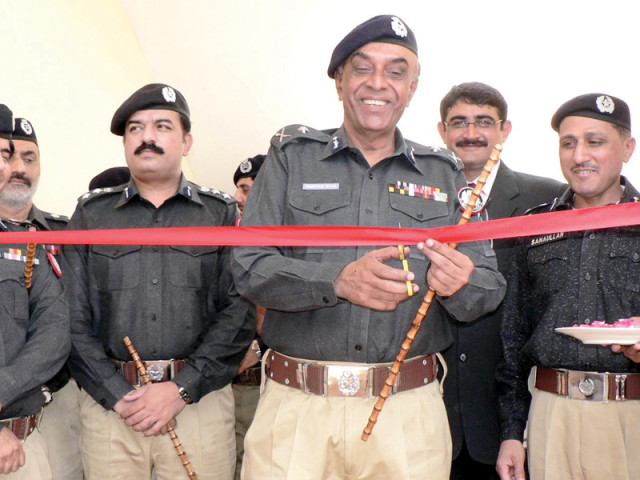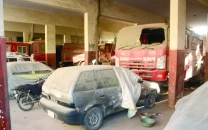Forensic science: Police celebrate lab inauguration
Cases from 13 districts to be investigated at the lab.

Forensic science: Police celebrate lab inauguration
After years of referring cases to Karachi, the police of Hyderabad region finally has its first forensic laboratory.
Regional Police Officer Mustaq Shah inaugurated the new facility on Saturday.
A DSP will be incharge and he will oversee a staff of 22 individuals. The lab has seven units for the examination of ballistics, questionable documents (or suspected forgeries), vehicle identification, fingerprints and crime scene cases.
Forensic photography and automated fingerprint identification will also be dealt with. Cases from 13 districts will be investigated at the lab.
The project has been funded by the Asian Development Bank under its 2008 agreement of providing a loan of Rs60 million for forensic labs in Sindh. The lab is expected to have a major impact on crime scene investigation in Hyderabad and the 13 districts.
The lawyers are also celebrating the new addition. “A case of stabbing to death was solved timely as the forensic report proved that the murder weapon had the suspect’s signature,” said Baizad Umrani, a lawyer.
While police officials celebrate, experts caution that it is the first step, at least in Hyderabad. “It has to be followed by sensitising the police to forensic sciences,” former AIG Forensic Division Karachi Javed Jiskani told The Express Tribune.
Currently posted as DPO Dadu, Jiskani graduated in Criminal Justice System from the London School of Economics. He designed training courses for the first ever forensic training school of Sindh police set-up in Karachi in 2010. Calling the opening of the lab a positive development, he said that forensic police’s solving of cases was 50 per cent, at least until he was incharge, because of a lack of staff and trained personnel.
RPO Mushtaq Shah said that investigation officers (IOs) need to be trained. AIG Forensic Division Sharjeel Kharal said that another lab will be launched in Larkana, while there were plans to setup a lab in Mirpurkhas.
DSP Mehar Ali Sangi, incharge of the Hyderabad lab, said that they have trained staff to deal with the cases of all seven categories. However, he added that their strength is low. “The IG Sindh has approved 125 personnel but their hiring has to be sanctioned by the finance department.”
Jiskani said that the Karachi division has recorded finger prints of some 300,000 criminals during the last two years. That data has been shared with NADRA and the federal interior ministry through an integrated database. “Like finger prints of human beings, signatures on spent bullet shells are also unique. Through reliable physical evidence and proper crime scene readings, the individual signatures can be identified and traced.” He was optimistic that forensic science would make strides in Pakistan as long as the division is run by competent and educated officers. “It was under Abdul Khaliq Shaikh, a bar at law, under whom the Criminalistic Division was transformed into the Forensic Division in 2009. Currently, Sharjeel Kharal, LLM in Human Rights from the University of Nottingham, is expanding it.” He emphasised the importance of a dynamic officer who is able to pursue foreign donors, train the new staff and put forensic on the map.
Published in The Express Tribune, May 15th, 2011.



















COMMENTS
Comments are moderated and generally will be posted if they are on-topic and not abusive.
For more information, please see our Comments FAQ